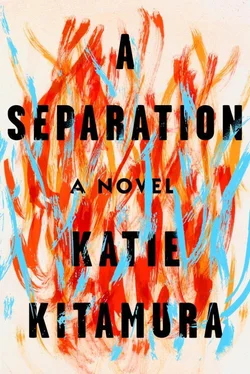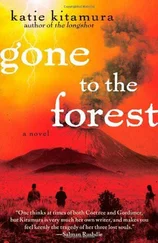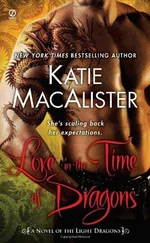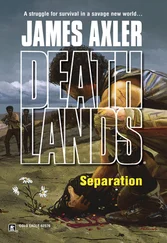Here is your passport, he said. I thanked him, he pushed the laptop a couple inches away and sat down on the edge of the desk, he said that he would be showing me a number of photographs on the computer—he waved a hand in the direction of the laptop—from which I would identify the body. I understood this to mean that I would look at photographs of the body before proceeding to the body itself—as though the images were a form of preparation, the way a nurse practitioner swipes your arm with an alcohol swab before an injection, a ritual that only exacerbates your dread.
This seemed much worse and I told him I would rather proceed directly, I would rather just see the body. He shook his head, perhaps he thought his English was failing him. I apologized for not being able to speak his language and he shook his head again. He motioned to the laptop for a second time. Only the photos, he said, and then repeated, Only the photos. For a moment, I wondered if the body had been lost or destroyed or in some way compromised, only the photos remained—a furthering of the nightmare, conceived in an instant. Then I realized that he meant only that the photos would be used to identify the body, only the photos , the body itself would remain elsewhere.
He asked if I was ready to begin and I nodded. The situation was not what I had expected, how strange it was, that one could have expectations for a situation never before imagined, and yet it was the case. I had been prepared to see the body and now I would only see photographs of the body, something that felt insufficient, too slight for the gravity of the situation, he had died alone and now he would be alone in his death, unwitnessed by anything apart from the flash of a camera.
I could have wept, it was so appalling. The officer touched the keyboard, rousing the machine from sleep, there were almost no icons on the desktop, which still had the preset factory image as its wallpaper. He frowned as he clicked on a folder—I couldn’t read the name of the folder, it was in Greek, it might have said autopsies or ID or simply photos , I had no idea—and then began scrolling through a surprising number of files, at least fifty or sixty. The task took some time, he started to hum tunelessly, his finger on the mouse pad.
Perhaps there had been many deaths in recent weeks, it wasn’t impossible, people must have died in the fires, I dreaded to think what those photographs would look like. The officer made a little sound of satisfaction—at last, he had found what he was looking for—and then without further ado (he had, after all, already warned me) he clicked on the file and the screen was filled with an image of Christopher’s face in death, his head resting on a metal surface, presumably the examining table at the coroner’s office. I stared at the image, the officer was watching me, then he looked away, discreetly, as if to give me privacy. After a moment, he cleared his throat and I looked up, startled.
Well?
I looked back at the photograph. I didn’t say anything—yes, of course it was Christopher, but I didn’t recognize the man in the image, that is to say, it was and it was not Christopher. I had never seen him in such a state, one eye was half opened and the other closed (it turned out they were neither opened nor closed in death but both, and this seemed to me a terrible thing, that nobody had bothered to close the other eye) and his mouth hung open as if he were in a state of shock, the shock of his death, which had been unusually violent—Christopher was no more accustomed to violence than the rest of us, possibly even less so.
It was a face that did not often confront you in life: the unvarnished face of death, so different from the face of the dead as presented in funeral parlors or in death masks, a face that has been processed, to which the dignity has been restored, and from which the emotion has been washed. He looked as if he were sleeping , a common thing to say, an attempt to deny the finality of death, sleep being some intermediate state between being and nothing, presence and absence. But it was more than this, he looked as if he were sleeping —it was also, I now understood, an attempt to pretend that the journey into death, the process of dying, was in some way peaceful, when it was almost certainly not.
Christopher’s face was not the face of a man sleeping, a man at peace. It was the face of a man who had been afraid. All faces are made stupid by fear, the emotion overrides intelligence, charm, humor, kindness, the qualities by which we know people, and for which we fall in love. But who is not afraid in the face of death? It was for this reason I was unable to say at once and definitively, This is Christopher, it was and it was not, the expression was unrecognizable and even the features themselves did not look like they belonged to the man I had been married to for five years, the man I was still married to.
The officer leaned forward, he clicked on the folder again. I had not responded to his question, he must have thought I needed to see more photographs in order to identify my husband, as if that single image was not enough, perhaps in some cases it was not—as I’d just seen, death transformed the face beyond recognition. I raised my hand to stop him, I didn’t need to see anything more, it was evidently Christopher, or rather, the sense I had that it was not—that it was a doppelgänger, a visual illusion, something other—would not be dispelled by further photographs.
It’s him, I said. That is Christopher.
I said it and that rather than he , people often do, the sentence He is Christopher sounded unnatural, it was impossible to pronounce. Nor was it reflective of the truth, there had been no he , there was nothing substantial to what I had seen, simply a collection of pixels, a file on the laptop. I had no desire to see the body and yet I could not believe that I was not going to see the body. I suddenly felt that I should at least ask. I raised my voice and said, Where is the body? I could not say, Where is he, it sounded like denial but in fact was almost acceptance, or at least an affirmation of the fact that once a death has occurred, the person is departed and there is nothing left but the body, it and not he , a mere semblance of the living person.
The officer—who lifted his hands from the computer as soon as I spoke, as if he too had no desire to look at any more images and was relieved, it might have been his job but that didn’t necessarily mean that he enjoyed the process—shrugged. The body is next door, he said. The phrase next door sounded too casual for such a serious thing, the location of my husband’s body. Next door, I repeated, the body is next door, Christopher is next door? And he shrugged again, waving his arm in the general direction of the hall, as if Christopher’s body had no concrete location, as if it were only out there, moving from place to place, traveling from room to room.
He asked, Do you wish to see the body? The question took me by surprise, although it shouldn’t have—of course such a thing would be offered to the wife, the widow, particularly one who had inquired after the location of the body, who had been so surprised to be confronted with photographs rather than the thing itself—and I hesitated, it was not that I was squeamish, although there was that too, seeing the photographs had been bad enough. It was more that I wondered if I had the right, if there was a woman—it’s always a woman at the side of the body, Mary Magdalene, Antigone, Lady Capulet, woman in multiple guises—who should have been there instead of me, perhaps Isabella, perhaps someone else.
Christopher had gone. What happened now was private to himself— as there are apartments in our own minds that we never enter without apology, we should respect the seals of others— and what was more private than one’s death, particularly when it was violent or unnatural? Wasn’t that why photographs of bodies torn from crime scenes and car accidents struck us as so tasteless, why we despised ourselves when we could not help but rubberneck at a car accident, the feet (still shod) sticking out from under the blue tarp? It wasn’t simply the horror of the dead body, it was the invasion of a stranger’s privacy, the act of seeing what should not be seen.
Читать дальше











